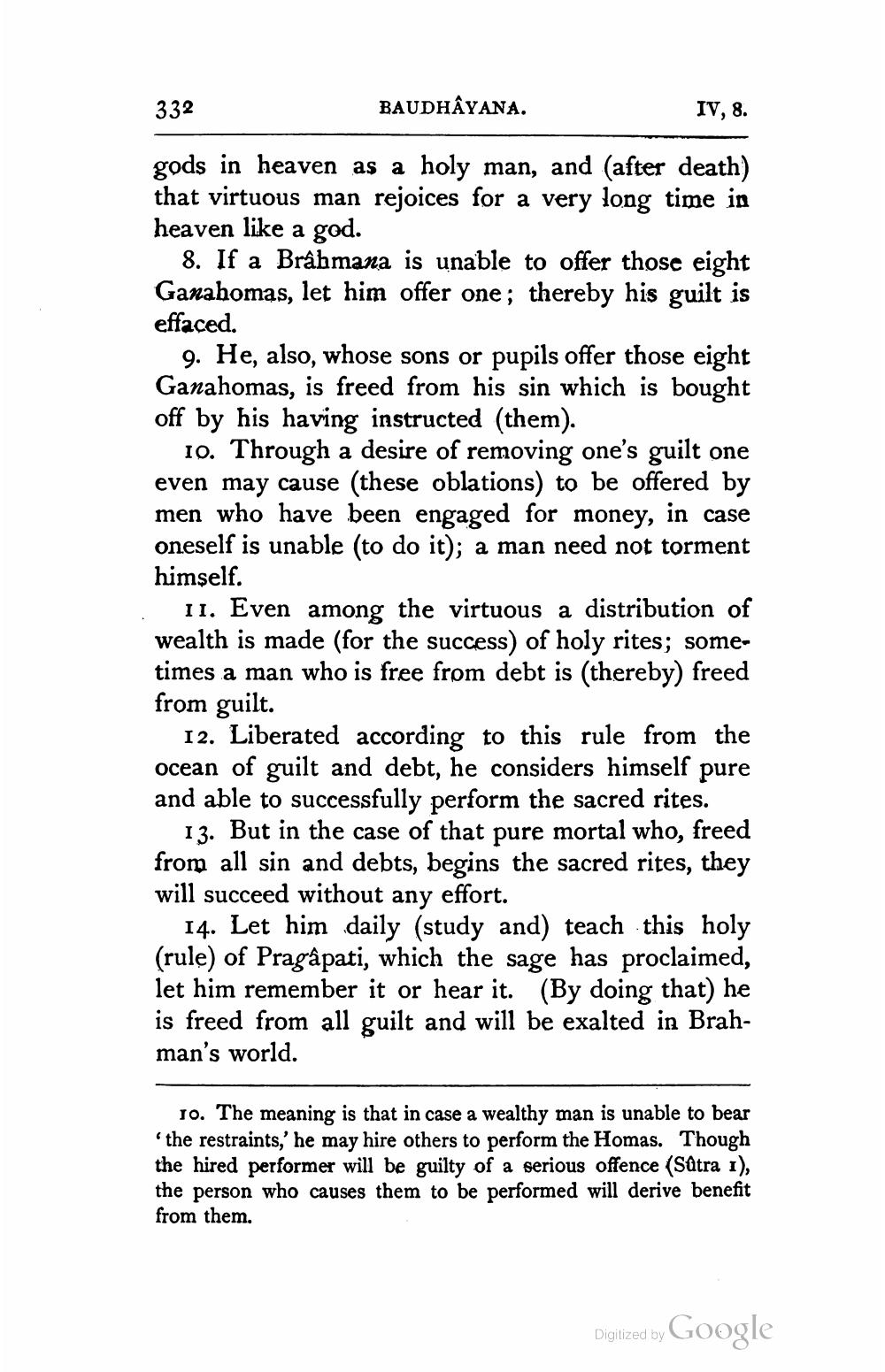________________
332
BAUDHAYANA.
IV, 8.
gods in heaven as a holy man, and (after death) that virtuous man rejoices for a very long time in heaven like a god.
8. If a Brâhmana is unable to offer those eight Ganahomas, let him offer one; thereby his guilt is effaced.
9. He, also, whose sons or pupils offer those eight Ganahomas, is freed from his sin which is bought off by his having instructed (them).
10. Through a desire of removing one's guilt one even may cause (these oblations) to be offered by men who have been engaged for money, in case oneself is unable (to do it); a man need not torment himself.
11. Even among the virtuous a distribution of wealth is made (for the success of holy rites; sometimes a man who is free from debt is (thereby) freed from guilt.
12. Liberated according to this rule from the ocean of guilt and debt, he considers himself pure and able to successfully perform the sacred rites.
13. But in the case of that pure mortal who, freed from all sin and debts, begins the sacred rites, they will succeed without any effort.
14. Let him daily (study and) teach this holy (rule) of Pragâpati, which the sage has proclaimed, let him remember it or hear it. (By doing that he is freed from all guilt and will be exalted in Brahman's world.
To. The meaning is that in case a wealthy man is unable to bear 'the restraints,' he may hire others to perform the Homas. Though the hired performer will be guilty of a serious offence (Sätra 1), the person who causes them to be performed will derive benefit from them.
Digitized by Google




